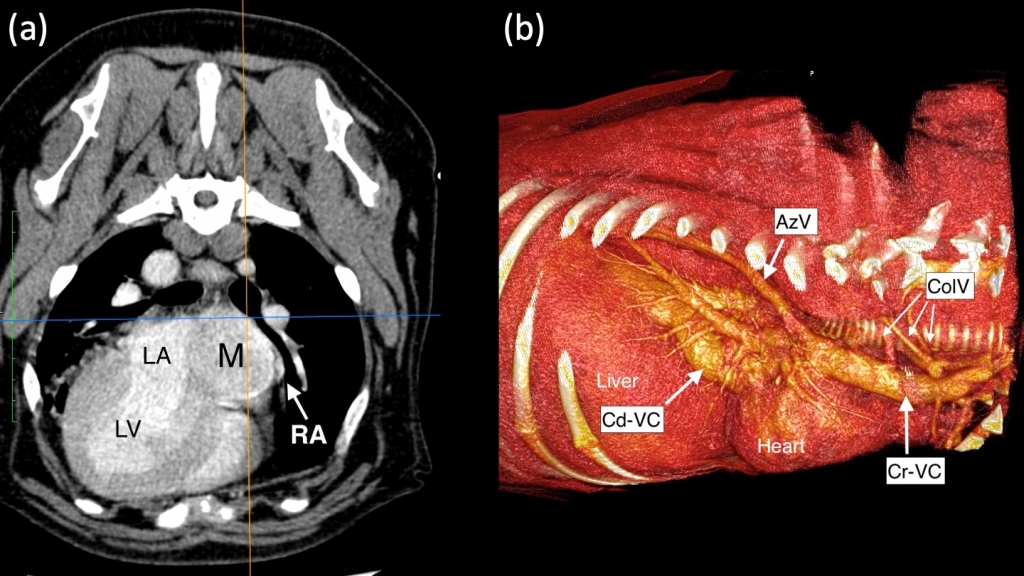
Stanley, a bulldog crossbreed, has made a fast recovery following a minimally invasive trans-atrial stent procedure at Eastcott Veterinary Referrals.
Minimally Invasive Cardiac Surgery Ensures Swift Recovery For Stanley
A dog suffering from a complex heart problem was able to return to his grateful owners just 24 hours after a pioneering minimally invasive trans-atrial stent procedure at a leading Wiltshire animal hospital.
The procedure was performed at Linnaeus-owned Eastcott Veterinary Referrals on a nine-year-old bulldog crossbreed to relieve the compression of his caudal cava and normalise venous return to the heart.
Stanley’s heart problem was first discovered by Eastcott when he was being scanned for a hip issue which is now being managed separately. Upon discovery, he was referred to Eastcott’s cardiology team for assessment of a cardiac mass, which turned out to be a heart-base tumour.
Diagnosis determined that Stanley had hepatic congestion and ascites, caused by neoplastic compression of the caudal vena cava at its entry point into the right atrium.
The procedure involved accessing Stanley’s heart using a trans-jugular approach, guided by fluoroscopic imaging.
After isolating the boundaries of the compression by performing an angiogram, Eastcott’s specialist-led cardiac surgery team deployed a woven Nitinol stent from the caudal to the cranial vena cava, through the right atrium.
Repeat angiography showed restoration of caudal caval flow and a radiograph was taken to show the final stent position.
Kieran Borgeat, clinical director at Eastcott and an American, European and RCVS Specialist in Veterinary Cardiology, said: “Eastcott’s cardiology team planned this keyhole surgery to relieve the compression of Stanley’s blood vessels, in order to improve Stanley’s cardiac output and prevent him from developing signs of liver congestion and heart failure.
“For this to be done, Stanley’s heart was accessed using specialized catheters and wires through the jugular vein in his neck, while the procedure was guided by fluoroscopy. We deployed a stent which would lift the tumour up and open the blood vessel, from within the vessel itself.
“We are pleased that the trans-atrial stent was successfully deployed and normal blood flow was restored. Stanley was able to go home the following day even though it was complex operation. This highlights one of the huge benefits of minimally invasive surgery – a low level of risk and predictable, rapid recovery for most patients.”
The Eastcott cardiology team can operate on a variety of conditions, including congenital heart disease in young animals, pacemaker implantation, and even intra-hepatic portosystemic shunts.
For more information about Eastcott Referrals visit www.eastcottreferrals.co.uk or search for Eastcott Veterinary Referrals on social media.
More from Linnaeus Group
- Mars Veterinary Health publishes 2025 Science Impact Report highlighting global advances in pet health
- AMVS specialist gets to heart of puppy's problem
- Garston Veterinary Group team earn BVRA recognition
- Chihuahua Lola loving life after 'challenging' spinal surgery
- Vets save therapy cat's life following road accident

 3 years ago
3 years ago  927 views
927 views
